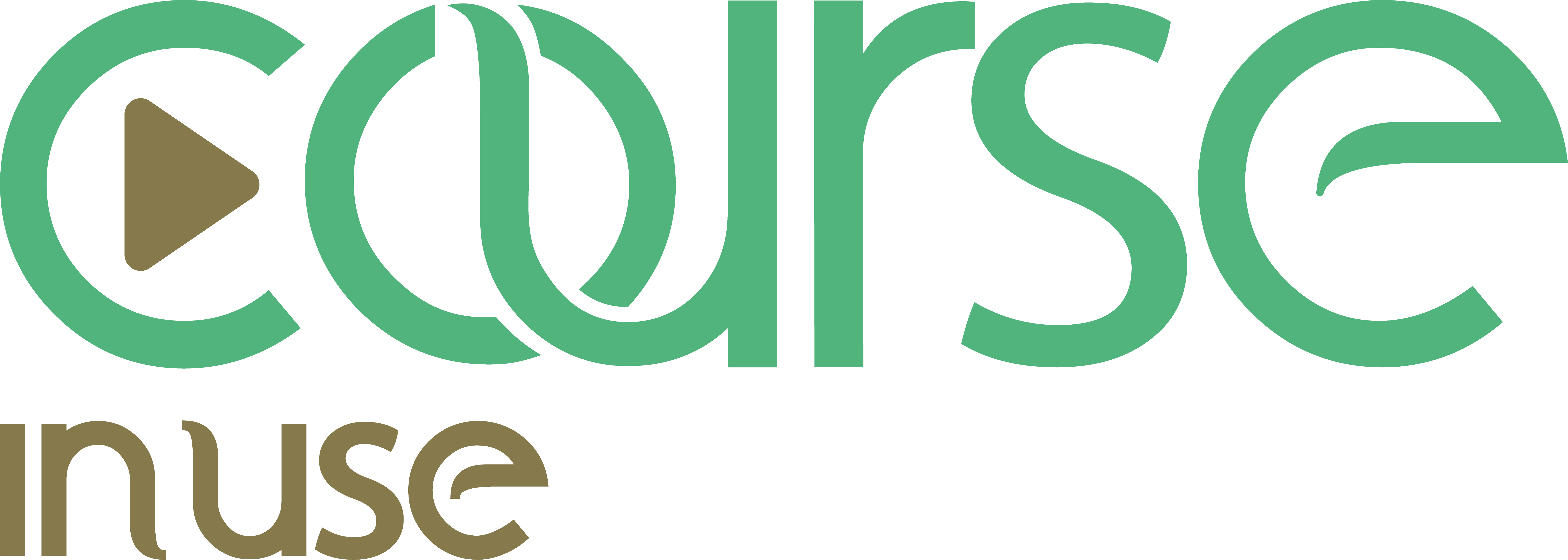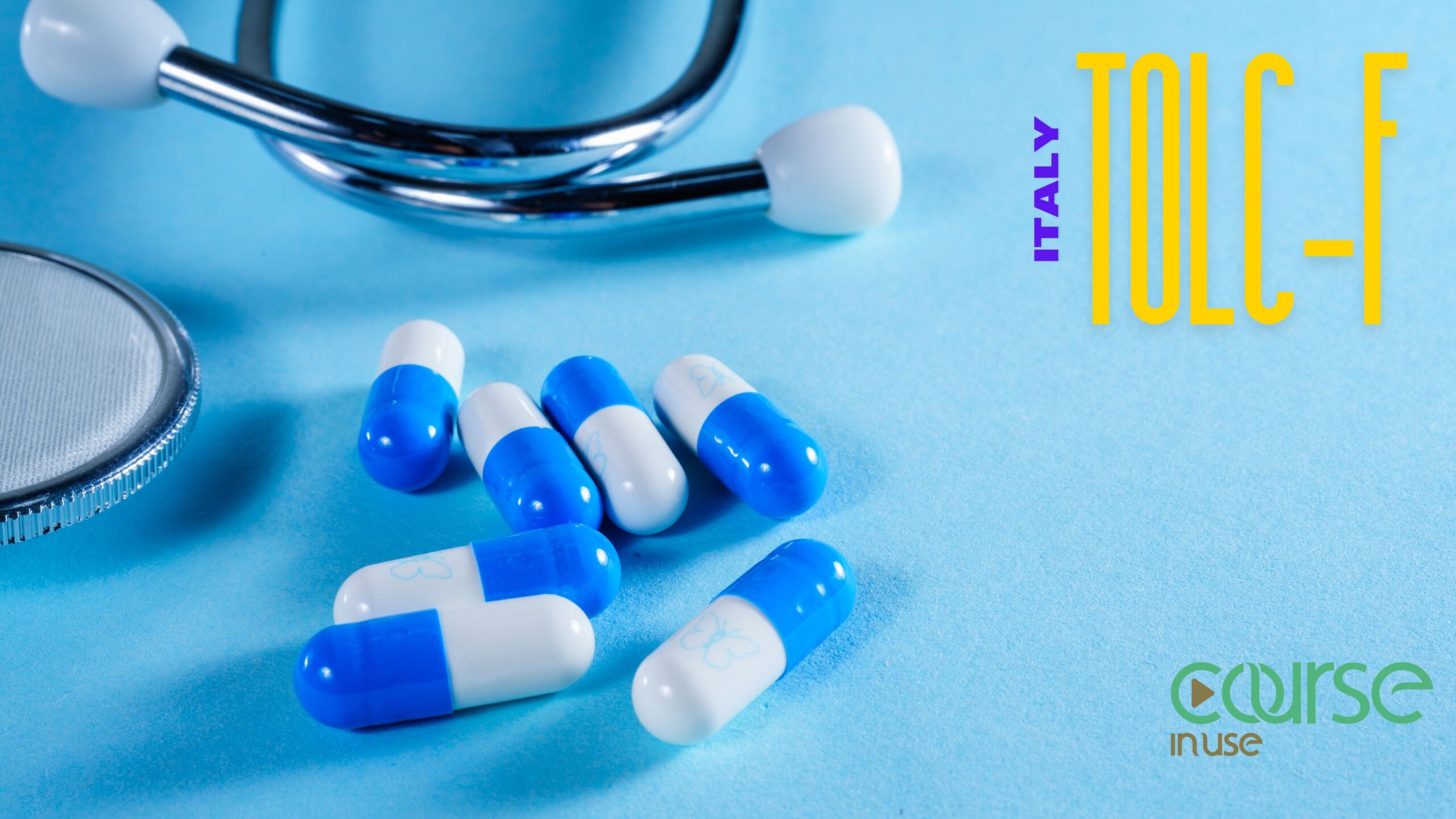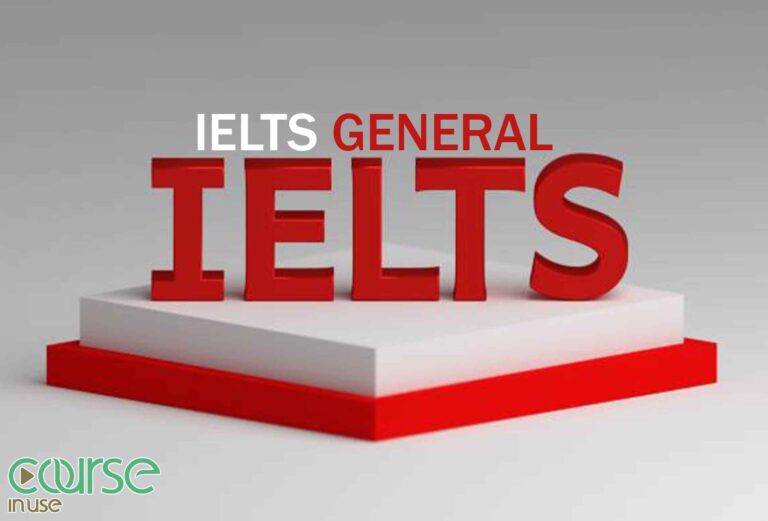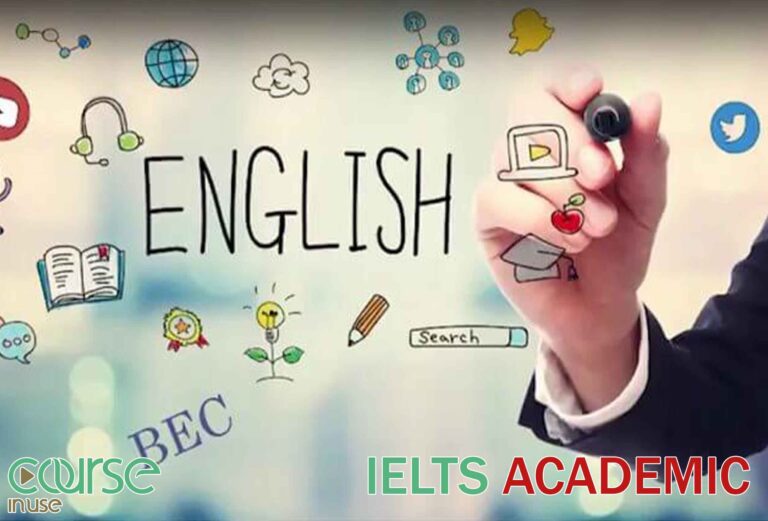TOLC-F Exam
The TOLC exams are related to the entrance exams for the pharmacy programs at universities in Italy. In this article, we will provide detailed explanations about the TOLC-F exam, TOLC-F exam resources, and sample questions and resources for the pharmacy exam in Italy, which is the same as the TOLC-F exam.
Another popular field among medical sciences in Italy, alongside medicine, is pharmacy. Pharmacy is one of the general doctoral fields in the experimental sciences. Italy offers pharmacy courses in both Italian and English. The English-taught pharmacy course is offered at two universities in Italy: the University of Bologna and the University of Tor Vergata in Rome.
What is the TOLC-F test?
In previous years, admission to the pharmacy programs at universities in Italy was based on the SAT exam and internal exams of each university. However, in the past two years, due to the COVID-19 pandemic, an online exam called TOLC has replaced the other exams for entry into the pharmacy programs at Italian universities.
The pharmacy course is a 5-year program that includes both bachelor’s and master’s degrees. This system is the same among pharmacy programs in European countries. After graduation, you will have the options to open a pharmacy, continue your academic studies at the PhD level, or work as a technical manager in a pharmacy.
In what languages is the Italian Pharmacy (TOLC-F) exam held?
The TOLC-F Pharmacy exam in Italy is conducted in both English and Italian. This online exam is organized by the CISIA institute and serves as the entrance exam for pharmacy courses, chemistry, and pharmaceutical technology fields. The subjects covered in this exam include biology, physics, chemistry, mathematics, and a logic section.
The English TOLC-F exam consists of 50 questions divided into 5 sections. These sections are biology, chemistry, mathematics, physics, and logic. It is worth mentioning that there are 15 biology questions and 15 chemistry questions. There are 7 questions each in the mathematics and physics sections, and the logic section consists of 6 questions. Unlike the Italian TOLC-F, the English TOLC-F does not include separate English questions. However, the university may require an English proficiency certificate or an interview to assess the candidate’s English level.
The Italian TOLC-F, like its English version, consists of 50 questions divided into 5 sections. These sections include biology, chemistry, mathematics, physics, and logic. The number of questions, as well as the time and topics, are the same as those in the English version. The only difference in the Italian version of the TOLC-F is the separate English section. Although the score of the English section is not included in the main score along with the other sections, a low score may require taking supplementary courses before or during the study program.
Conditions for participating in the TOLC_ F exam
There are no special conditions for participating in the TOLC_ F test. You can even take this test without a high school diploma. Of course, some Italian universities do not accept participation in this exam without a diploma.. You don’t even need to prove your language skills to participate in this exam, but since this exam is held in English and Italian, you must learn one of these two languages. Another condition for participating in the TOLC F exam is high knowledge of biology, chemistry, physics, etc.
The structure of the TOLC_F Italian test
The TOLC-F test consists of 50 questions divided into five sections. In the table below, we have brought you these sections along with their details
| Sections | Number of questions | Time |
| biology | 15 questions | 20 minutes
|
| chemistry | 15 questions | 20 minutes
|
| Math | 7 questions
|
12 minutes
|
| physics | 7 questions
|
12 minutes
|
| Logic and reasoning
|
6 questions
|
8 minutes
|
| Total | 50 questions
|
One hour and 12 minutes (72 minutes)
|
The biology section in the exam
- Biological elements
- Properties of water
- Biological molecules and macromolecules
- The structure of glycosidic monomers
- Fat molecules
- Amino acids and nucleotides
- Structure and function of macromolecules including polysaccharides, nucleic acids, and proteins
- Properties of enzymes
Elements of biodiversity
- Diversity of living things
- Organization of living things
- Bacterias
- Beginners
- Mushrooms
- Plants
- Animals
- viruses
Cell Biology
- Cellular organization
- Functional characteristics of prokaryotic and eukaryotic cells, the main cell components including cell membrane, cell wall, cytoplasm, mitochondria, plastids, ribosomes, endoplasmic reticulum, Golgi apparatus, lysosomes and nucleus
Cell cycle, reproduction, and inheritance
- Cell reproduction includes mitosis and meiosis
- Chromosomal complement
- Reproduction and heredity
- Life cycles of sexual and asexual reproduction
- Mendelian genetics
- Classical genetics including the chromosomal theory of inheritance
- Sex chromosomes
- Molecular genetics including DNA and genes
- Genetic code
- Protein synthesis
- DNA of prokaryotes
- Chromosome of eukaryotes
- Human genetics including transmission of monogenic and multigenic traits
- Hereditary diseases
- genetic mutation
Bioenergy
- Energy flow and biological importance of photosynthesis, glycolysis, aerobic respiration, and fermentation
- Autotrophic and heterotrophic metabolism
- Ecosystem components
- Trophic chains
- Producers, consumers and decomposers
- Interaction between biological species including competitive life, mutual symbiosis, and parasitic life
Basics of human anatomy
- Anatomy of the human body including the musculoskeletal system
- Digestive, respiratory, circulatory, excretory, immune, endocrine, nervous, and reproductive systems
Basics of physiology
- Physiology of the human body including the functions of support and movement, nutrition, respiration, blood circulation, and excretion
- Immune, endocrine, and nervous functions, reproductive function
The chemistry section in the TOLC-F exam
The chemistry section of the Tulk F test also has several topics, which we will introduce to you below: matter, atomic structure, and the periodic table.
atom’s structure
- Periodic table of elements
- Chemical bonds, ionic bonds and covalent bonds
- General and inorganic chemistry and inorganic compounds
- Basics of inorganic chemistry including naming and main properties of these compounds
- Oxides, hydroxides, acids and salts
- The position of the elements in the periodic table
Chemical reactions
- Chemical reactions, atomic and molecular weight, Avogadro’s number, concept of mole, gram-to-mole conversion and vice versa, simple reactions, types of chemical reactions
- oxidation
- Acids and bases
- Properties of water including solubility, expressing the concentration of acid solutions
- Concepts of acid and base, acidity, neutrality, the openness of aqueous solutions, the concept of pH
Organic chemistry
- Basics of organic chemistry including the chemistry of living organisms, bonding of carbon atoms
- Alcohols, ethers, aldehydes, ketones, carboxylic acids, esters and amides
The math part in the Tolk F test, the questions of the math lesson are also proposed from different parts, which we have brought to you below:
Numbers and sets
- Numbers and their properties include simple operations, sorting and comparison
- Absolute value
- Prime numbers, decomposition into prime numbers
- The greatest common divisor and the least common multiple
- Dividing an integer by the remainder
- Ratios and percentages, powers and roots
Algebra
- Basic algebra
- Algebraic expressions and calculation of monomials and polynomials
- Decompose a polynomial into a monomial
- Division by polynomials, Ruffini’s theorem
- Equations and Inequalities Algebraic equations and inequalities of the first and second-degree
- Absolute value
- Exponential and logarithmic equations and inequalities
- System of linear equations and quadratic
trigonometry
- Measurement in degrees and radians
- Basic trigonometric functions including sine, cosine, tangent and cotangent of an angle
- Basic trigonometric relations
Functions
- Function definition
The geometry
- The Pythagorean Theorem
- Perimeter and Area
- A parabola with an axis of symmetry parallel to the axis
probability and statistics
- Number factorial and binomial coefficient
- Combination and permutation
The physics section in the Tolk F test, the physics course in the Tolk F test, like other sections, has several chapters, which we will discuss below:
Measurement criteria
Units of measurement
- Convert between units of measurement
- scientific symbol
- arithmetic mean
- Relative and absolute errors
- Scale rules
- Direct and inverse proportion
Systematic and dynamics
- vectors and operations on vectors.
- Systematic quantities such as displacement, velocity, and acceleration
- Description of movements in space (path) and time (hourly equation)
- Various motions, especially uniform linear motion, uniform acceleration motion, and uniform circular motion
forces
- The concept of crime
- The concept of force
- Laws of dynamics
- The law of gravity and the acceleration of gravity
- The concept of weight
- Frictional, elastic and electrical forces
- Kinetic energy
- potential energy
- Law of conservation of mechanical energy
- The concept of movement
Fluid Mechanics
- Condensed liquid states
- Pressure and its measurement units
- Pascal’s Principle
- Archimedes principle
- current
- Energy conservation for moving fluids
Thermology, gas kinetic theory, and thermodynamics
- Temperature and thermal balance (zero principle)
- Thermometer scales
- Gases and complete gases
- Mole, Avogadro’s number and atomic mass
- Internal energy of monoatomic gases
- Heat and specific heat capacity
- Change of state and latent heat
- Kinetic theory of gas
- Equation of state, gas laws and complete gas equation of state
- Isochoric, isobaric, isothermal and adiabatic processes
- First, second and third principles of thermodynamics
- Define function entropy
- Heat transfer mechanisms such as conduction, convection and radiation
- Joule’s effect
Electrostatics, electric currents and magnetism
- Electric and induction charging
- Electrical Field
- Direct current electric potential, electric resistance, resistance and Ohm’s law
- Dipole magnetic phenomena
- Magnetic field, Lorentz force, Faraday-Lens law and induced currents
Waves and geometric optics (beam optics)
- General characteristics of waves and wavelength
- Speed wave propagation
- Types of waves
- Interference and wave diffraction phenomena
- Sound waves
- Concepts about electromagnetic waves and the nature of light
- light spectrum
- light scattering
- Reflection and refraction
- Full reflection of the optical path
- diopter mirror
- Thin lens
- Optical focus
- Pictures
- magnification
The logic and reasoning section in the TOLC-F test
The logic section in the TOLC- F test has only one heading and that is logic and language. This chapter includes the following lessons:
- The logic of propositions
- Necessary and sufficient conditions
- Interpreting all kinds of graphic displays and tables
- Paying attention to basic mathematical concepts
How to register for the TOLC-F test?
To register for the TOLC-F exam, you must visit the CISIA website. Next, you must click on the Register option. After doing this, you need to select the desired TOLC type, here we mean TOLC-F. After choosing the type of exam, you have to choose the date and venue. In the last step, you have to pay the registration fee. The cost of participating in the Tulk F exam is 30 euros.
How is the TOLC_F test held?
TOLC-F test is usually held once a month. Of course, there is a possibility that this test will be held twice in one month. Of course, regarding the result, we must say that the last test you take is known as the result of the pharmacy test, and if your score is lower than the previous tests, you cannot use them. This test is online and each person has their own questions. If you want to be admitted to the University of Bologna in Italy in the field of pharmacy, you must take the Tulk F exam in person.
How is the scoring in the TOLC_F test?
In the Italian pharmacy exam, each question has its own separate score. Each correct answer will get one mark, each wrong answer will get 0.25 negative marks, and any question you leave without an answer will have no marks.
Immediately after the end of the exam, you can go to the CISIA website and enter your information. After entering the information, you can see your score. 48 hours after the test, CISIA will send the test report along with its transcripts to your email
Note that this test has a total of 50 points or marks and to pass the test and enter Italian universities in the field of pharmacy, you must get at least 18 marks.
Do I need an Italian study visa for the TOLC- F Italy exam?
No, it is not necessary to obtain an Italian study visa to participate in the Italian TOLC exam. The TOLC exam is an entrance exam for foreign students who want to study at Italian universities. You can travel to Italy without a visa and only with a return ticket to participate in this exam. Of course, after passing the exam and the university, you must apply for a study visa. So, you don’t need an educational visa to participate in the Tulk test, and you can register and participate in this test without a visa.
Course In Use website is the best Comprehensive resources for learning international online courses and preparing for international exams.




